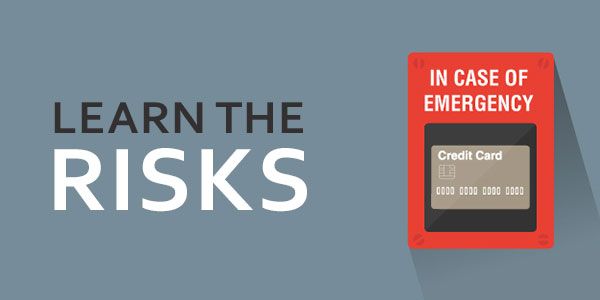
In times of crisis, whether it be a natural disaster, a medical emergency, or unforeseen financial challenges, being prepared is essential. While we often focus on having emergency kits, evacuation plans, and sufficient supplies, it’s equally important to consider how we manage our finances during these difficult times. One tool that can be particularly useful is the credit card. However, using credit cards wisely is crucial to avoid exacerbating financial stress. In this blog post, we will explore the strategic ways in which you can utilize credit cards during emergencies while minimizing the potential risks.
- Establishing an Emergency Fund:
Before delving into credit card strategies, it’s important to highlight the importance of having an emergency fund. This fund serves as a financial cushion during unforeseen circumstances, reducing the immediate reliance on credit cards. While credit cards can offer short-term relief, having a savings buffer provides a more stable foundation for managing unexpected expenses.
- Selecting the Right Credit Card:
Not all credit cards are created equal, and choosing the right one can make a significant difference during a crisis. Look for credit cards with low interest rates, no annual fees, and rewards programs that can be beneficial in the long run. Additionally, having a card with a higher credit limit can provide more flexibility in covering emergency expenses.
- Strategic Use of Credit:
When faced with a crisis, it’s crucial to use credit cards strategically. Reserve credit card usage for essential expenses like medical bills, necessary repairs, or temporary accommodations. Avoid using credit cards for non-essential purchases to prevent accumulating unnecessary debt.
- Communication with Creditors:
In times of crisis, communication is key. If you anticipate difficulties in meeting credit card payments, contact your creditors as soon as possible. Many financial institutions have hardship programs or may be willing to negotiate temporary solutions, such as lowering interest rates or extending payment deadlines.
- Monitoring and Budgeting:
Keeping a close eye on your credit card statements and overall financial situation is crucial during emergencies. Create a budget that prioritizes essential expenses and allocate credit card usage accordingly. Regular monitoring will help you stay on top of your financial situation and make informed decisions.
- Exploring Insurance and Protection:
Some credit cards offer insurance and protection benefits, such as coverage for travel emergencies, rental car insurance, or purchase protection. Familiarize yourself with the benefits provided by your credit card company, as they can offer additional assistance during challenging times.
- Avoiding Cash Advances:
While it may be tempting to withdraw cash using your credit card during a crisis, it’s important to be cautious. Cash advances often come with high fees and interest rates, making them an expensive way to access funds. Explore alternative options before resorting to cash advances.
Conclusion:
In times of crisis, the strategic use of credit cards can provide financial support and flexibility. However, it’s essential to approach credit card usage with caution and responsibility. By establishing an emergency fund, selecting the right credit card, using credit strategically, communicating with creditors, monitoring your finances, and exploring additional benefits, you can navigate through challenging times more effectively. Remember, the goal is to mitigate financial stress and create a foundation for recovery.
